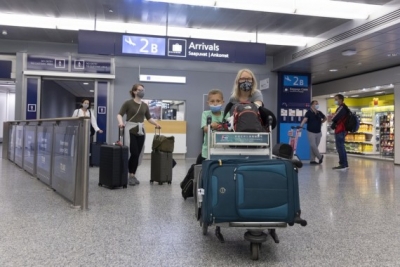 Helsinki, Feb 4 (IANS) Finland needs net immigration of up to 44,000 people annually to stabilise the size of the country’s labour force, a report has said.
Helsinki, Feb 4 (IANS) Finland needs net immigration of up to 44,000 people annually to stabilise the size of the country’s labour force, a report has said.
The report published by the Research Institute of the Finnish Economy (Etla) on Friday examined the economic effects of work-based immigration, and how immigration can compensate for the effects of Finland’s aging population, Xinhua news agency reported.
Etla said that the level of immigration required to boost the workforce is almost three times the actual level predicted by Statistics Finland: around 15,000 people annually.
Finland’s working-age population began to decline at the turn of the 2010s, when the “baby boomer” generation moved into retirement.
If the current low birth rate and the level of immigration forecast by Statistics Finland continue, the working-age population will drop by nearly 20 percent by 2070.
Such a decrease in the labour force would result in a slowdown in the growth of the national economy, and affect the sustainability of the welfare state, Etla warned.
“There is a lot of room for increasing the employment rate in Finland, but it is by no means enough to cover the future need for labour,” said Tarmo Valkonen, research advisor at Etla.
According to Etla’s model calculations, with the required level of immigration the labour input would increase by almost 10 per cent by 2040, and approximately 40 per cent by 2070.
Although the report points out that the impact of immigrants with low levels of education on the public economy is less positive than that of highly-educated people, low-skilled immigration is still beneficial to Finland’s economy since it enables services to function and the general population to target better jobs that match their education.
“As life expectancy rises, additional immigration would still not be enough to stop the population aging,” Etla added.
–IANS
int/sha









